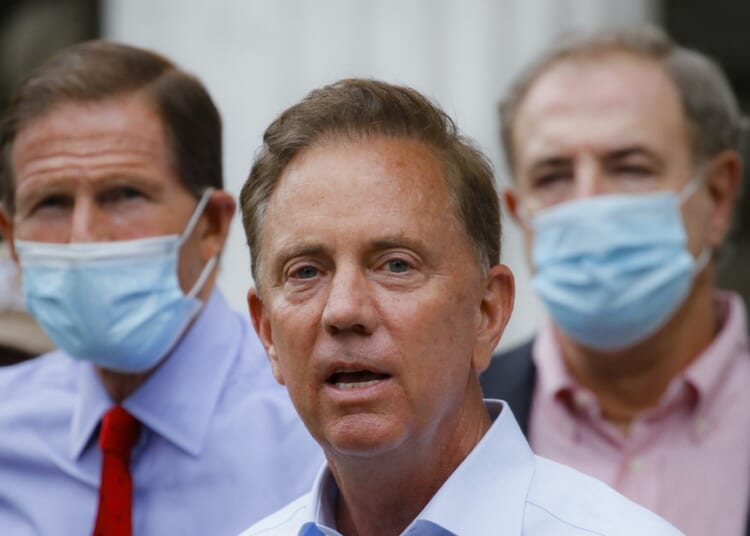Most of the recent public discussions of debt cancellation have dealt with Joe Biden’s seemingly endless efforts to “erase” student debt. In Connecticut, Democratic Governor Ted Lamont appears to be taking a page from the Biden playbook and applying it to a different type of debt. He announced this week that the state would be “erasing” medical debt for qualifying residents. Recipients of this relief will not have to apply for any sort of program as the debt would be “automatically” paid by a contracted nonprofit agency. To be eligible, residents would need to earn less than 400% of the federal poverty line or hold debt totaling more than 5% of their annual household income. But who will be funding all of this generosity and why should this specific type of debt be forgiven? (NY Post)
Connecticut will cancel medical debt for all eligible residents, its governor announced on Friday, making it the first state to do so.
Gov. Ned Lamont said during an appearance on “Good Morning America” that the state would erase medical debt for thousands of residents who qualify under a new initiative that intends to help lift people from an often tremendous financial burden.
“This is not something they did where they were spending too much money. This is because they got hit with a medical emergency, and they should not have to suffer twice: first for the illness, then with the debt,” Lamont said.
In an attempt to be fair, I will readily acknowledge that this sort of plan isn’t anywhere near as odious as the federal student debt relief fiasco. Medical debt isn’t technically a “loan” that people take out of their own volition. It can also add up quickly, particularly given the byzantine billing systems used by too many hospitals and clinics. So some form of governmental help with such burdens might not be out of the question.
With all of that said, however, the proposal in Connecticut raises plenty of questions. First, the eligibility seems very loose for any program being funded by the taxpayers with no representative voice in the decision. A limit of 400% of the federal poverty line works out to a household income of $156,000 for a family of four. That obviously doesn’t put you in Elon Musk territory, but given that the median family income in the country is roughly $96,000 today, it sounds like you should be able to pay your bills with that sort of income level. And if your total debt is less than $7,500 (five percent of that) it doesn’t sound crippling or unmanageable.
Then there is the question of where the state will be getting the money to fund this program. Lamont says that they will be using American Rescue Plan Act funds. In other words, it’s another way to blow some of the COVID relief money that’s been sloshing around. But the pandemic has been over for a while now, so how is this related to the supposed purpose of those massive government giveaways? I suppose if the family’s medical debt was directly related to a hospital stay to treat COVID, it might be appropriate, but people go to the hospital for many unrelated matters. If your hospital stay was caused by an automobile accident or a totally unrelated disease, why would ARP funds be assigned to that? (Lamont is quoted as saying this is “absolutely the right way” to use those funds.)
So how much COVID money are we talking about? Lamont said that the state plans to “leverage $6.5 million in American Rescue Plan Act funds to erase approximately $1 billion in medical debt.” Huh? How does that work? There’s an awfully large gap between $6.5 million and $1 billion. Where is the rest of the money coming from? You can already guess the answer to that question without the Governor telling you. Whenever the government at any level is giving away “free stuff,” you’re paying for it. Whether it comes from the entire country’s pockets as part of the COVID relief funds or from some state account, the taxpayers will be footing the bill for this. Once again, working people will shoulder the burden so that pockets of money can be handed out to a favored few.
Whenever someone from the government shows up declaring that they’re about to “help” you, the first thing you should do is check your wallet. That’s particularly true in an election year. Lamont will probably score a number of adoring headlines for his “compassionate” plan, but the voters of Connecticut should really be telling their representatives that the legislature needs a voice in decisions like these.











